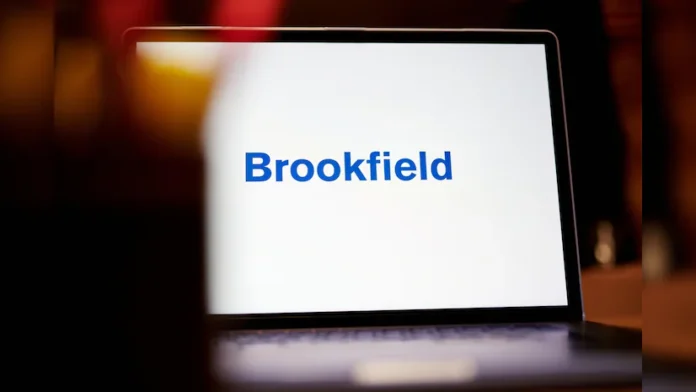Brookfield Corporation Pledges $12 Billion for Mumbai’s Infrastructure Development
In a landmark move, Toronto-based investment giant Brookfield Corporation has committed a monumental $12 billion (₹1.03 lakh crore) to enhance Mumbai’s infrastructure. This substantial investment, unveiled at the World Economic Forum (WEF) in Davos, sets the stage for the city’s transformation over the next five to seven years. As the largest of over 50 agreements signed at this year’s WEF for Maharashtra, Brookfield’s partnership promises far-reaching impacts on the region’s urban landscape, pushing the city closer to its goal of becoming a global hub of modern infrastructure and business.
The multi-faceted investment will be directed towards several key areas within Mumbai’s infrastructure ecosystem. These include metro systems, roadways, bridges, and the construction of Global Capability Centres (GCCs) that will serve as offshore offices for international companies. Notably, the funds will focus on both residential and commercial real estate, including Transit-Oriented Development (TOD) and Land Value Capture (LVC) strategies, ensuring the smart and sustainable growth of Mumbai’s sprawling urban landscape. Additionally, investments will extend to the development of data centres and logistics hubs, enhancing the region’s position as a critical node for global businesses.
The areas earmarked for development include KSC New Town, encompassing over 323 square kilometres, and other Special Planning Areas (SPAs) in the northern and southern parts of the Mumbai Metropolitan Region (MMR). This sweeping development plan is expected to contribute significantly to the economic prospects of the region, propelling the MMR towards achieving a projected $300 billion economy by 2030. The investment will also play a crucial role in the state’s broader objective of contributing to India’s ambition to reach a $5 trillion economy within the next few years.
Economic Impact and Sustainable Development: A Vision for the Future
As significant as this investment is in terms of economic potential, it also holds profound implications for sustainability in Mumbai’s growth. The incorporation of blue and green infrastructure elements, including water conservation and eco-friendly urban design, speaks to Brookfield’s commitment to building resilient and environmentally responsible infrastructure. This is in line with global trends towards sustainable urban planning, which seeks to mitigate the environmental impacts of rapid urbanisation while improving the quality of life for residents.
A crucial facet of Brookfield’s investment strategy is its alignment with the growing emphasis on smart cities and sustainable development in India. The focus on Transit-Oriented Development (TOD) reflects the need for reducing traffic congestion, curbing pollution, and enhancing the overall mobility within the city. By creating integrated infrastructure that prioritises public transport and reduces dependency on private vehicles, the development will be a key contributor to Mumbai’s sustainable growth.
Further, the infusion of capital into data centres and logistics will bolster the digital economy while creating jobs and fostering innovation. These sectors not only promise immediate economic returns but also provide long-term benefits in terms of global competitiveness. The integration of smart, sustainable technologies in these developments ensures that Mumbai’s infrastructure will be future-proofed, reducing energy consumption and promoting environmental sustainability across sectors.
Foreign Investment Trends and the Future of Mumbai’s Real Estate Sector
The $12 billion investment is part of a broader pattern of increased foreign interest in Mumbai’s infrastructure and real estate sectors. According to property consultancy Knight Frank, Mumbai has long been the leading recipient of private equity investments in India, with over $2 billion flowing into the city’s real estate sector alone in 2024. This is more than double the amount received by Bangalore, the second-largest destination for real estate investment. A significant proportion of these investments has been directed towards completed office spaces, as foreign investors favour assets that offer immediate rental income.
However, the preference for ready assets over under-construction projects reflects ongoing concerns around the stability of returns in India’s fast-evolving real estate market. Factors such as government spending, interest rates, inflation, and currency fluctuations continue to influence investor decisions. Despite these challenges, Mumbai’s status as an investment magnet remains unchallenged, with Brookfield’s commitment underscoring the city’s growth potential.
A New Chapter for Mumbai’s Urban Future
Brookfield’s investment will not only help shape Mumbai’s physical landscape but also position it as a centre of excellence in terms of urban planning and sustainable growth. The planned infrastructure improvements are set to enhance the city’s competitiveness on the global stage, providing a model for other Indian cities striving for development that balances growth with environmental responsibility.
With a targeted completion date of 2030, this ambitious undertaking will significantly impact the lives of millions in Mumbai and the surrounding region. The jobs it creates, the industries it supports, and the improvements it brings to daily life will be felt across the city, reinforcing Mumbai’s reputation as one of the most dynamic and forward-thinking metropolises in the world.



